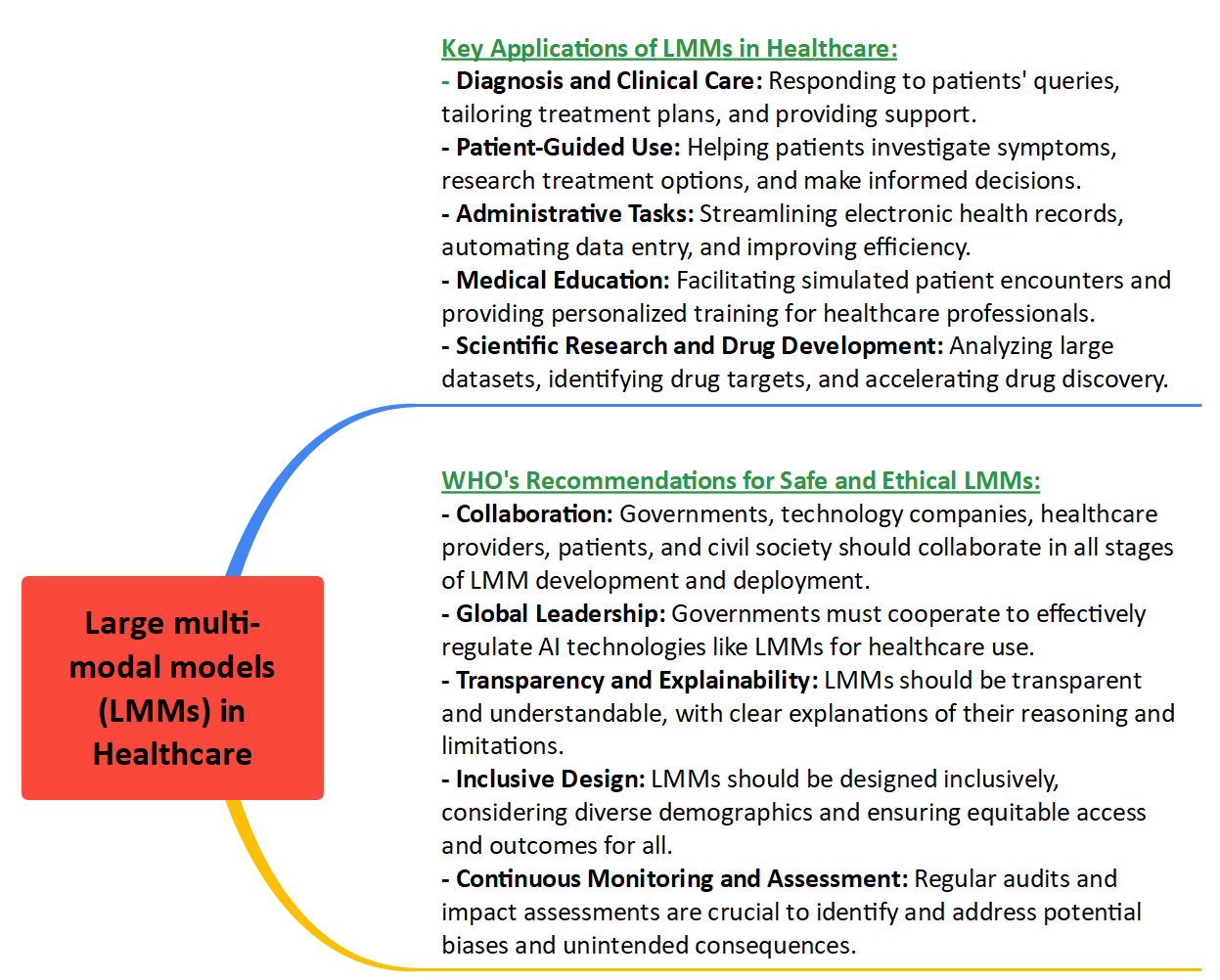Free Courses Sale ends Soon, Get It Now


Free Courses Sale ends Soon, Get It Now



Copyright infringement not intended
Picture Courtesy: www.downtoearth.org.in
Context: The World Health Organization (WHO) has released comprehensive guidance on the ethical use and governance of large multi-modal models (LMM) in healthcare.
Details
The WHO's guidance identifies five major applications of LMMs in healthcare:
Risks Associated with LMMs in Healthcare
The WHO Recommendations for Mitigating Risks

Conclusion
Must Read Articles:
Multimodal Artificial Intelligence: https://www.iasgyan.in/daily-current-affairs/multimodal-artificial-intelligence
|
PRACTICE QUESTION Q. How is artificial intelligence being utilized to enhance and transform healthcare practices, and what specific applications or advancements have shown promise in improving patient outcomes and overall healthcare efficiency? |
© 2024 iasgyan. All right reserved